CENTRAL EUROPE
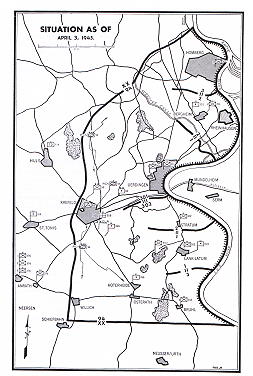 After the 94th was relieved at Ludwigshaven the moved to the town of Baumholder for well-deserved rest and refit. As they moved west they passed countless convoys of men and material moving east on their drive into Germany. At Baumholder the GI's got the opportunity to clean weapons clothing, and vehicles while they rested and waited for orders. The 94th's new assignment came on the morning of March 28th. The 94th was transferred to the newly established XXII Corps attached to the Fifteenth Army. The Division new assignment was to relieve the 102nd Infantry Division in the German City of Krefeld, 175 miles to the north. On March 30-31 the troops began boarding trucks and trains for the trip north. The XXII Corps was under the Command of Major General Earnest N. Harmon and the Fifteenth Army was under the Command of
Lt. Gen Leonard T. Gerow. The 94th was assigned along with the 101st and 82nd Airborne Divisions. The trip was uneventful as the GI's passed through the countryside on their journey. Spring was budding everywhere, and farmers were preparing their fields for planting. The only signs of war were the wrecked vehicles along the roads and the cities smashed by allied bombings. The men arrived on Easter Sunday, April 1, 1945. The 94th's new assignment was to maintain the west bank of the Rhine River containing a pocket of troops in the Ruhr area. During the 1st and 9th Army's drive into the Rhineland they isolated Field Marshal Walter Model's Army Group B and elements of Army Group H in the Rhur Valley. Over 300,000 troops were trapped in this rectangular shaped corridor. The 94ths job was to keep these troops contained and from escaping to the west.
The 301st and 302nd Regiments took up their front line positions while the 376th was assigned occupation duties in the rear area. The 465th AA Battalion was assigned as air defense and occupation duties as well. In addition to the 94th were the 1st Battalion, 1st Netherlands Regiment "Limbert"of the Dutch Army. Opposing the Americans were the 183rd and 176th Volksgrenadier Divisions. Somewhat depleted units that consisted mostly of older men, convalescents, and young boys. Upon arrival the 302nd Infantry regiment sent a patrol across the Rhine to reconnoiter the enemy positions. This ill-fated ten-man patrol ran into trouble and after several members were killed and wounded and the remaining members had to swim back across the Rhine after losing their boats. This patrol was the first of many the 94th and the Airborne Divisions would be ordered to partake in. The idea was to launch several probing patrols from the west bank of the Rhine and relieve the pressure on the 1st and 9th Armies opposing the Germans in the east. While this was taken place the 376th was busy fulfilling its military governing duties. Thousands of German civilians had to be organized, fed, and set to work. Food supplies had to be allocated and distributed to the 1500 Displaced Persons (DP's) or slave laborers the 94th had in their area. The 94th went about
De-Nazifying the city officials and replacing them with personnel whom could run the factories, public works, and transportation. The German police forces had to be screened and many towns' police forces were completely relieved of their duties. Meanwhile, the 2nd battalion, 302nd advanced across the Rhine and occupied the town of Mundelheim.
After the 94th was relieved at Ludwigshaven the moved to the town of Baumholder for well-deserved rest and refit. As they moved west they passed countless convoys of men and material moving east on their drive into Germany. At Baumholder the GI's got the opportunity to clean weapons clothing, and vehicles while they rested and waited for orders. The 94th's new assignment came on the morning of March 28th. The 94th was transferred to the newly established XXII Corps attached to the Fifteenth Army. The Division new assignment was to relieve the 102nd Infantry Division in the German City of Krefeld, 175 miles to the north. On March 30-31 the troops began boarding trucks and trains for the trip north. The XXII Corps was under the Command of Major General Earnest N. Harmon and the Fifteenth Army was under the Command of
Lt. Gen Leonard T. Gerow. The 94th was assigned along with the 101st and 82nd Airborne Divisions. The trip was uneventful as the GI's passed through the countryside on their journey. Spring was budding everywhere, and farmers were preparing their fields for planting. The only signs of war were the wrecked vehicles along the roads and the cities smashed by allied bombings. The men arrived on Easter Sunday, April 1, 1945. The 94th's new assignment was to maintain the west bank of the Rhine River containing a pocket of troops in the Ruhr area. During the 1st and 9th Army's drive into the Rhineland they isolated Field Marshal Walter Model's Army Group B and elements of Army Group H in the Rhur Valley. Over 300,000 troops were trapped in this rectangular shaped corridor. The 94ths job was to keep these troops contained and from escaping to the west.
The 301st and 302nd Regiments took up their front line positions while the 376th was assigned occupation duties in the rear area. The 465th AA Battalion was assigned as air defense and occupation duties as well. In addition to the 94th were the 1st Battalion, 1st Netherlands Regiment "Limbert"of the Dutch Army. Opposing the Americans were the 183rd and 176th Volksgrenadier Divisions. Somewhat depleted units that consisted mostly of older men, convalescents, and young boys. Upon arrival the 302nd Infantry regiment sent a patrol across the Rhine to reconnoiter the enemy positions. This ill-fated ten-man patrol ran into trouble and after several members were killed and wounded and the remaining members had to swim back across the Rhine after losing their boats. This patrol was the first of many the 94th and the Airborne Divisions would be ordered to partake in. The idea was to launch several probing patrols from the west bank of the Rhine and relieve the pressure on the 1st and 9th Armies opposing the Germans in the east. While this was taken place the 376th was busy fulfilling its military governing duties. Thousands of German civilians had to be organized, fed, and set to work. Food supplies had to be allocated and distributed to the 1500 Displaced Persons (DP's) or slave laborers the 94th had in their area. The 94th went about
De-Nazifying the city officials and replacing them with personnel whom could run the factories, public works, and transportation. The German police forces had to be screened and many towns' police forces were completely relieved of their duties. Meanwhile, the 2nd battalion, 302nd advanced across the Rhine and occupied the town of Mundelheim.
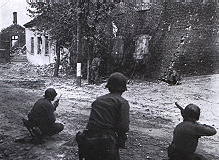 The Germans had retreated from the area the previous day and now the 94th had a bridgehead across the Rhine. On April 12th the 94th received word that President Roosevelt died and this news deeply saddened many of the men in the 94th. Military Governing duties and Combat Patrols into the Rhur Pocket continued until April 16th when the Germans Surrendered to the American authorities. The Allies added some 315,000 Prisoners of War along with 51 Generals to the total of prisoners taken. The 94th was officially out of contact with the enemy.
The Germans had retreated from the area the previous day and now the 94th had a bridgehead across the Rhine. On April 12th the 94th received word that President Roosevelt died and this news deeply saddened many of the men in the 94th. Military Governing duties and Combat Patrols into the Rhur Pocket continued until April 16th when the Germans Surrendered to the American authorities. The Allies added some 315,000 Prisoners of War along with 51 Generals to the total of prisoners taken. The 94th was officially out of contact with the enemy.
Dusseldorf
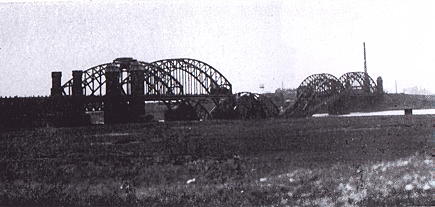 On April 20, 1945 the Division was alerted for movement across the Rhine to assume new occupation duties in the city of Dusseldorf. The 250th Field Artillery regiment relieved the 94th at Krefeld and the division moved once more. Dusseldorf was in the heart of the German Industrial Rhur valley. The division set up its headquarters in the main offices of the Krupp Steel Works. After the division settled in the largest concern was the tens of thousands of DP's in the area. A special staff section was set up to handle the difficult task of taking care of these people. While this was happening the rest of the 94th set about it's military governing duties. Motorized and foot patrols were established. Houses and buildings were searched for contraband and weapons. The 319th engineers went about their business of building two pontoon bridges across the Rhine into Duisberg. Another Bailey bridge named after war correspondent Ernie Pyle was constructed.
On April 20, 1945 the Division was alerted for movement across the Rhine to assume new occupation duties in the city of Dusseldorf. The 250th Field Artillery regiment relieved the 94th at Krefeld and the division moved once more. Dusseldorf was in the heart of the German Industrial Rhur valley. The division set up its headquarters in the main offices of the Krupp Steel Works. After the division settled in the largest concern was the tens of thousands of DP's in the area. A special staff section was set up to handle the difficult task of taking care of these people. While this was happening the rest of the 94th set about it's military governing duties. Motorized and foot patrols were established. Houses and buildings were searched for contraband and weapons. The 319th engineers went about their business of building two pontoon bridges across the Rhine into Duisberg. Another Bailey bridge named after war correspondent Ernie Pyle was constructed. Thousands of German civilians were allowed to moved west back across the river after careful screening for Nazis. Troops not actively involved in the military duties were given training in foreign languages, exercise, first aid and drills in order to better prepare them for the occupation of Germany. On April 30th a Mass grave of political prisoners was discovered and were dug up and identified by the local population. Also on April 30th news of the death of Adolf Hitler was reported, and later confirmed. Finally on May 8, 1945 Germany surrendered to the Allies in Rhiems, France, the war was officially over. The 94th continued its occupation duties until the beginning of June when they received word to move to a new assignment in Czechoslovakia.
Thousands of German civilians were allowed to moved west back across the river after careful screening for Nazis. Troops not actively involved in the military duties were given training in foreign languages, exercise, first aid and drills in order to better prepare them for the occupation of Germany. On April 30th a Mass grave of political prisoners was discovered and were dug up and identified by the local population. Also on April 30th news of the death of Adolf Hitler was reported, and later confirmed. Finally on May 8, 1945 Germany surrendered to the Allies in Rhiems, France, the war was officially over. The 94th continued its occupation duties until the beginning of June when they received word to move to a new assignment in Czechoslovakia.
CZECHOSLOVAKIA
 On June 7th 1945 the 94th and the veterans of the 774th TD Battalion were alerted for movement. The 465th AA Battalion, which had been with the 94th since January 7th was not to accompany the division, they detached on June 12th and remained in Dusseldorf. The British 53rd Infantry division relieved the 94th of its duties and the division left for Susice, Czechoslovakia. Advance parties traveled by truck to set up billeting for the Division. It took the division three days to make the 325 miles many of the foot units traveled by train to
Susice. On the trip to his new assignment, Uncle Freddie told me of his visit to
Nuremburg, Germany. He recalled the devastation of the city and how " Not
one building was standing" On June 14th the 94th began relieving the 328th regiment of the 26th Infantry division. The division was transferred back to General Patton's third Army but continued to be part of the XXII Corps, which was transferred also. The primary mission was to man roadblocks separating the zones of occupation between the Americans and the troops of the Soviet Union. Along with this mission came the military occupation duties of the cities of Susice, Horazdovice, Strakonice, and Bavorov. Czechoslovakia, which was invaded in 1938 by Hitler's troops, had no love for the Nazis or the German people. After the cessation of hostilities they quickly purged their government and civil authorities of all German
On June 7th 1945 the 94th and the veterans of the 774th TD Battalion were alerted for movement. The 465th AA Battalion, which had been with the 94th since January 7th was not to accompany the division, they detached on June 12th and remained in Dusseldorf. The British 53rd Infantry division relieved the 94th of its duties and the division left for Susice, Czechoslovakia. Advance parties traveled by truck to set up billeting for the Division. It took the division three days to make the 325 miles many of the foot units traveled by train to
Susice. On the trip to his new assignment, Uncle Freddie told me of his visit to
Nuremburg, Germany. He recalled the devastation of the city and how " Not
one building was standing" On June 14th the 94th began relieving the 328th regiment of the 26th Infantry division. The division was transferred back to General Patton's third Army but continued to be part of the XXII Corps, which was transferred also. The primary mission was to man roadblocks separating the zones of occupation between the Americans and the troops of the Soviet Union. Along with this mission came the military occupation duties of the cities of Susice, Horazdovice, Strakonice, and Bavorov. Czechoslovakia, which was invaded in 1938 by Hitler's troops, had no love for the Nazis or the German people. After the cessation of hostilities they quickly purged their government and civil authorities of all German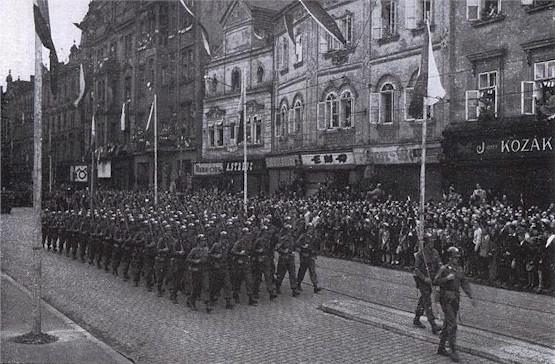 sympathizers and Nazis. When the 94th arrived to administer military authority they found the Czech people very friendly and cooperative unlike those encountered in Krefeld and Dusseldorf. The German and Austrian civilians in the area were only more than happy to cooperated with the Americans which had the job of screening and processing them for movement back to their own countries. The Czech people had an intense hatred of these people who came in with the Nazis and stole their lands and set themselves up in their towns. Now with no protection except the Americans occupiers, These DP's gladly cooperated in order to speed their movement along. Side from processing DP's there were almost no incidents of violence of any sort. Throughout the summer the duties of the 94th consisted mostly of processing German POW's and Monitoring the Russian American border. There were many instances of the Russians infiltrating the American zone and these troops were repatriated back to their zone. During the fall the 94th's strength was depleted as many soldiers were allowed to go home, having accumulated the necessary points to return to the states. On September 6,7, and 8th the division sent the remaining 2882 men of the original cadre who were still with the 94th to the US 8th division for return back to the US. On September 10, 1945, Uncle Freddie along with some five hundred men was sent to the 38th Calvary Reconnaissance squadron for return to the US. The division gradually disbanded throughout the fall and winter of 1945. On February 9, one year from the time when they were fighting desperately in the "Siegfried Switch," the 94th Infantry was deactivated. The 94th now only remains as an reserve command component of the US Army.
sympathizers and Nazis. When the 94th arrived to administer military authority they found the Czech people very friendly and cooperative unlike those encountered in Krefeld and Dusseldorf. The German and Austrian civilians in the area were only more than happy to cooperated with the Americans which had the job of screening and processing them for movement back to their own countries. The Czech people had an intense hatred of these people who came in with the Nazis and stole their lands and set themselves up in their towns. Now with no protection except the Americans occupiers, These DP's gladly cooperated in order to speed their movement along. Side from processing DP's there were almost no incidents of violence of any sort. Throughout the summer the duties of the 94th consisted mostly of processing German POW's and Monitoring the Russian American border. There were many instances of the Russians infiltrating the American zone and these troops were repatriated back to their zone. During the fall the 94th's strength was depleted as many soldiers were allowed to go home, having accumulated the necessary points to return to the states. On September 6,7, and 8th the division sent the remaining 2882 men of the original cadre who were still with the 94th to the US 8th division for return back to the US. On September 10, 1945, Uncle Freddie along with some five hundred men was sent to the 38th Calvary Reconnaissance squadron for return to the US. The division gradually disbanded throughout the fall and winter of 1945. On February 9, one year from the time when they were fighting desperately in the "Siegfried Switch," the 94th Infantry was deactivated. The 94th now only remains as an reserve command component of the US Army.

Freddie had earned enough "points" from his time with the 94th to go home early. The point system was devised by General Eisenhower to let those soldiers with the most time in service be allowed to go home first ahead of those who just arrived. Men earned these points based on their age, the number of dependents they had, length of service, time spent overseas, and combat decorations earned with 85 points being the number needed to go home. Freddie had earn 96 points during his campaigns with the 94th, so he was one of the first to leave. He left Czechoslovakia and traveled back to Omaha Beach in Normandy, France. On October 14, 1945 he boarded a "Victory Ship" and traveled first back to England, then finally home to New York. He was processed out of the Army on October 26, 1945. After his discharge Freddie went back to the Philadelphia area for many years, he then moved with his family to Fairbury, Nebraska where he remained until his death. He is survived by his wife Loretta and two daughters, Yvonne and Karen.
Uncle Freddie received the following decorations:
1. Combat Infantry Badge
2. Bronze Star
3. European African Middle Eastern Campaign Medal with Four Service Stars
4. Army Good Conduct Medal
5. World War II Victory Medal

Marion Jereb was drafted from Westmoreland County (Western Pennsylvania) and went thru the Induction Center at Fort Meade. He took a 17 week Infantry basic at Camp Croft near Spartanburg, SC. and qualified for the ASTP program. He attended the University of Mississippi before being assigned to the 94th. He was shipped on bus to Camp McCain and assigned to 301st infantry C Company along with Freddie. He was of immense help to me in getting Uncle Freddie's story.

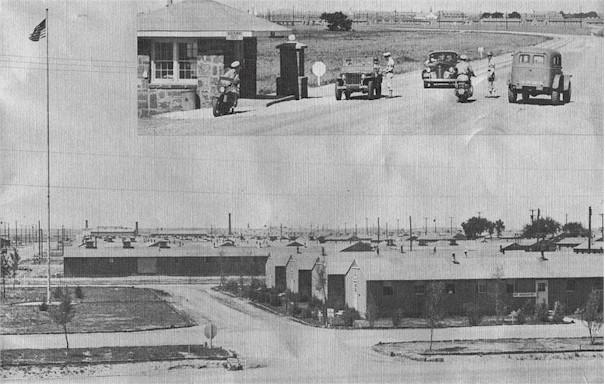 INDUCTION
AND TRAINING: The Beginning
INDUCTION
AND TRAINING: The Beginning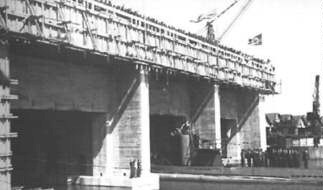 NORTHERN
FRANCE: The "Forgotten Front"
NORTHERN
FRANCE: The "Forgotten Front"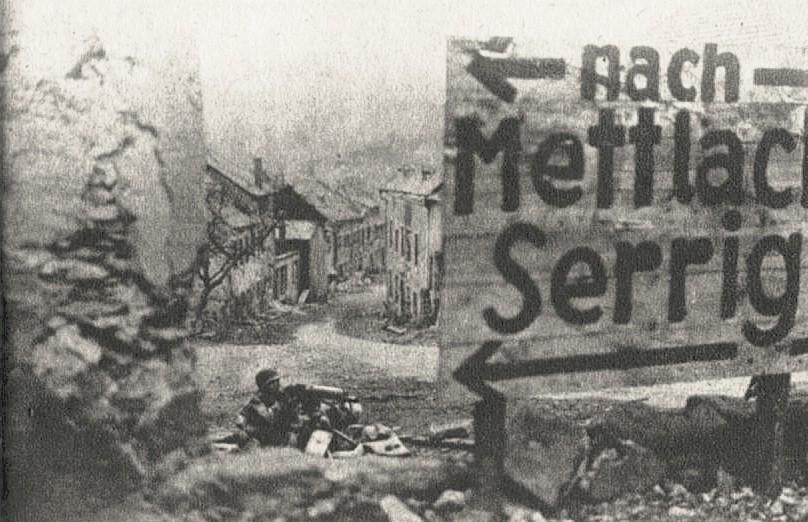 ARDENNES-ALSACE:
The "Siegfried Switch Line"
ARDENNES-ALSACE:
The "Siegfried Switch Line" RHINELAND:
The Race to Ludwigshaven
RHINELAND:
The Race to Ludwigshaven CENTRAL
EUROPE: Surrender and Occupation
CENTRAL
EUROPE: Surrender and Occupation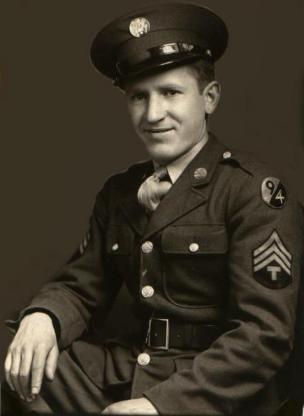 Alfred
J. Dionne: Home Page
Alfred
J. Dionne: Home Page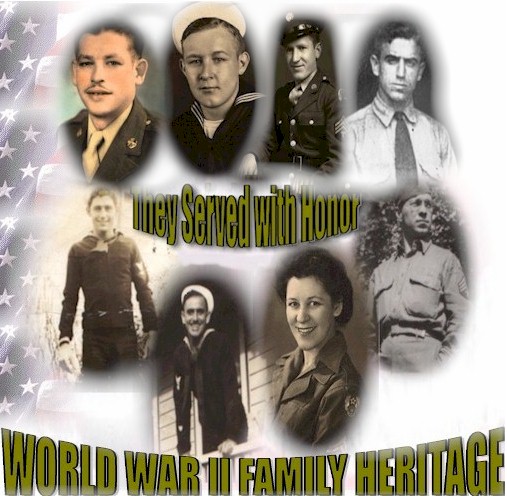 They
Served with Honor : Home Page
They
Served with Honor : Home Page
 References,
Sources, and Links
References,
Sources, and Links